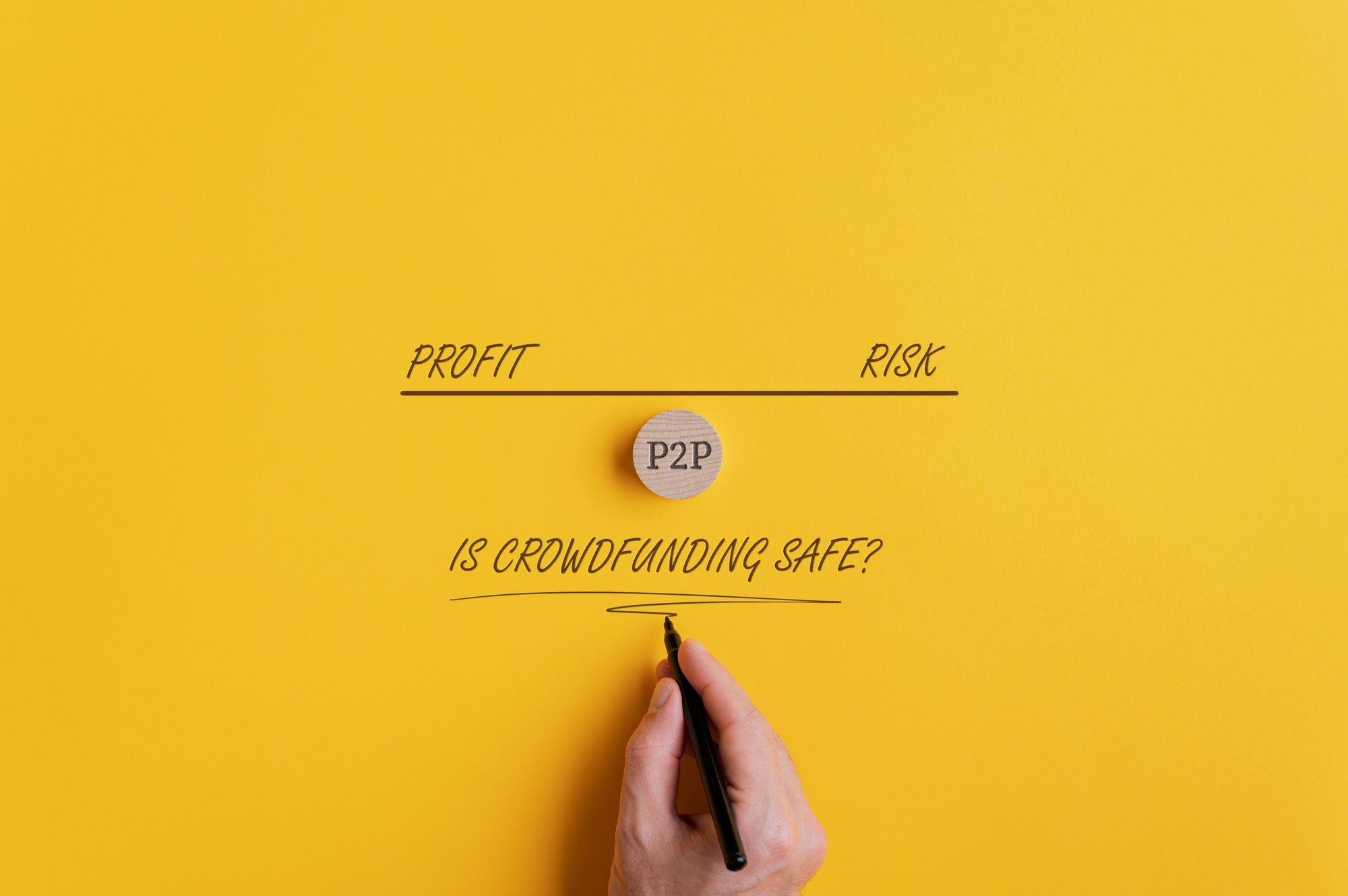Key Takeaways

- Democratized Investing: Crowdfunding investments open up opportunities for individuals to invest in startups and innovative projects, bypassing traditional funding routes.
- Diverse Crowdfunding Models: Various models like reward-based, equity, and debt crowdfunding cater to different investment preferences and business needs.
- Accessibility for All: Investors of all financial backgrounds can participate, making it easier for aspiring investors to support and engage with new businesses.
- Community Support: Crowdfunding fosters a collaborative environment, allowing investors to connect directly with entrepreneurs and support innovative ideas.
- Awareness of Risks: Potential for financial loss and the lack of regulation in the crowdfunding space necessitate careful research and due diligence before investing.
- Strategic Platform Selection: Choosing the right crowdfunding platform and evaluating investment opportunities are crucial steps for maximizing the chances of success.
Crowdfunding investments have revolutionized the way you can support startups and innovative projects. Instead of relying solely on traditional funding sources, you now have the opportunity to invest in ideas that resonate with you. This shift not only democratizes investing but also empowers entrepreneurs to bring their visions to life with the backing of the community.
As you explore the world of crowdfunding, you’ll discover a diverse range of platforms and opportunities. From equity crowdfunding to reward-based models, there’s something for everyone. Whether you’re a seasoned investor or just starting out, understanding the nuances of crowdfunding can help you make informed decisions and potentially reap significant rewards. Get ready to dive into this exciting landscape and learn how to navigate your way through the myriad of options available.
Understanding Crowdfunding Investments
Crowdfunding investments transform how small businesses seek capital. You can leverage various crowdfunding models to fund projects and engage with a community of supporters who share your vision.
What Is Crowdfunding?
Crowdfunding involves gathering small contributions from many people, often through online platforms. This method enables you to access financing without traditional bank loans or investor contributions. Many small businesses use crowdfunding to finance projects, launch new products, or expand operations. Platforms like Kickstarter and Indiegogo connect you with potential backers eager to support innovative ideas.
Types of Crowdfunding Investments
You can choose from several crowdfunding types to align with your business goals:
- Reward-Based Crowdfunding: In reward-based crowdfunding, backers receive a non-financial reward, like a product or service, in exchange for their investment. This model suits small businesses looking to fund creative projects while building a customer base.
- Equity Crowdfunding: In equity crowdfunding, investors receive shares in your business in return for their money. This option allows you to raise capital while giving backers a stake in your success. Investors may provide valuable insights and support beyond financial contributions.
- Debt Crowdfunding: Debt crowdfunding entails borrowing money from multiple lenders, which you repay with interest over time. This method can help manage cash flow while expanding your small business.
By understanding these crowdfunding types, you can make informed decisions on financing your projects and optimizing your growth strategy.
Benefits of Crowdfunding Investments

Crowdfunding investments offer compelling advantages tailored for small business owners and aspiring investors. These benefits include accessibility, diverse opportunities, and financial incentives.
Accessibility for Investors
Crowdfunding makes investing accessible to you, regardless of your financial resources. You can contribute small amounts to various projects on crowdfunding platforms. This democratization opens doors for many investors who lack the capital for traditional venture capital opportunities.
Support for Startups and Entrepreneurs
Crowdfunding provides essential financial support for startups and entrepreneurs. It allows you to engage directly with businesses seeking funds, fostering a sense of community and collaboration. By backing small businesses, you contribute to their growth while potentially earning returns on your investment. Understanding these opportunities enhances your financial portfolio and supports innovation in your industry.
Risks Associated with Crowdfunding Investments

Crowdfunding investments offer unique opportunities, but they also carry significant risks that you must understand before diving in.
Lack of Regulation
Crowdfunding lacks comprehensive regulation compared to traditional investment avenues. You’ll find many crowdfunding platforms operate with minimal oversight, leading to potential scams or fraud. Due diligence is essential when choosing where to invest your money, as inadequate regulation can expose you to unreliable projects or unqualified businesses.
Potential Financial Losses
Investing in crowdfunding can lead to complete financial losses. Small businesses often face challenges in scaling operations and generating sustainable revenue, particularly in their early stages. Many startups fail, and with them, your investment could vanish. Crowdfunding investments are speculative and often lack historical data, making risk assessment complex. Understand that you may not see returns, or you might lose all the money you invested.
How to Get Started with Crowdfunding Investments

Crowdfunding investments present a unique avenue for funding your small business. This approach allows you to raise money from a large number of people, often through online platforms, making it a valuable tool for innovative projects.
Choosing the Right Platform
- Research various crowdfunding platforms that focus on small businesses. Some platforms cater specifically to startups, while others appeal to real estate or community projects.
- Compare platform features, fees, and community engagement metrics. It’s crucial to align your business’s needs with a platform’s strengths.
- Read platform reviews and success stories. Understanding which platforms showcase successful small business campaigns helps in selecting the right fit for your project.
Evaluating Investment Opportunities
- Assess the size of the investment and its potential return. Different crowdfunding models offer varying risk levels associated with your financial contributions.
- Analyze the business model and the management team behind a project. Strong leadership often correlates with a higher chance of success.
- Review the market potential of the project or small business. Detailed market research increases confidence in whether the investment aligns with your financial goals.
Conclusion

Crowdfunding investments offer a unique opportunity for both entrepreneurs and investors. By participating in this innovative financing model, you can support groundbreaking projects while potentially earning returns. It’s essential to approach this landscape with a clear understanding of the risks involved and to conduct thorough research on platforms and projects.
As you explore crowdfunding, remember that due diligence is key. Assess each opportunity carefully and choose platforms that align with your investment goals. By staying informed and making strategic decisions, you can navigate this exciting world of crowdfunding and contribute to the growth of tomorrow’s businesses. Your involvement could make a significant difference in the success of innovative ventures.
Frequently Asked Questions

What is crowdfunding?
Crowdfunding is a method of raising capital by gathering small contributions from many people, typically through online platforms. This approach enables startups and entrepreneurs to access financing without relying solely on traditional loans.
What are the different types of crowdfunding?
The main types of crowdfunding include reward-based, where backers receive non-financial rewards; equity crowdfunding, which offers shares in the business to investors; and debt crowdfunding, where borrowers repay multiple lenders over time.
How do investors benefit from crowdfunding?
Investors can benefit from crowdfunding by contributing small amounts to various projects, enabling them to diversify their portfolios. By backing startups, they not only support innovation but may also earn returns if the business succeeds.
What risks are involved in crowdfunding investments?
Crowdfunding investments come with risks, including the potential for scams, inadequate regulation, and the possibility of complete financial loss. Many startups struggle to scale and may not provide returns, making thorough due diligence essential for investors.
How can one start investing in crowdfunding?
To start investing in crowdfunding, it’s crucial to choose the right platform. Research various platforms focusing on small businesses, compare features, fees, and community engagement, and read reviews to find the best fit for your investment goals.
Image Via Envato



